Hopes For Hostage Release As Israel PM Says Deal 'Right Decision'
Hopes mounted Tuesday that Hamas could release dozens of hostages from war-torn Gaza after the Israeli premier said a truce deal was the "right decision" and the militant group's leader and key mediator Qatar said an agreement was in sight.
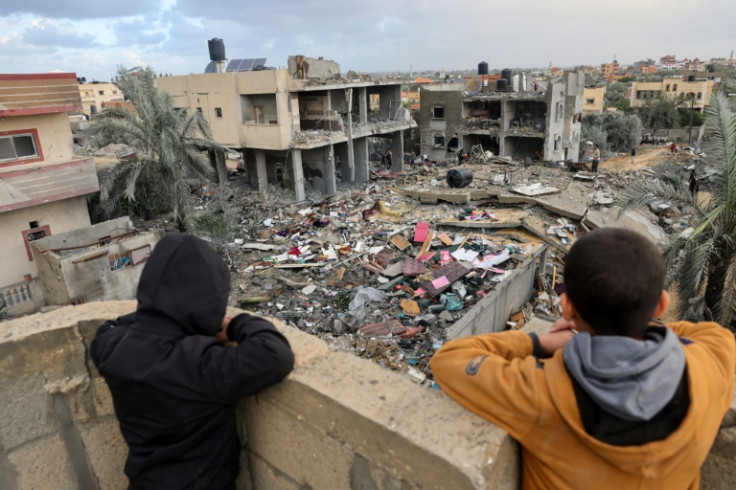
Hopes mounted Tuesday that Hamas could release dozens of hostages from war-torn Gaza after the Israeli premier said a truce deal was the "right decision" and the militant group's leader and key mediator Qatar said an agreement was in sight.
The announcements are the most optimistic yet of a potential breakthrough in the conflict, which has raged for more than six weeks and left thousands dead on both sides.
Israeli Prime Minister Benjamin Netanyahu told a meeting of his cabinet that accepting a deal for the release of hostages taken in the Hamas attacks of October 7 was "a difficult decision but it's a right decision".
Netanyahu, who has vowed to destroy Hamas, said US President Joe Biden had helped to "improve the framework being laid out before you... to include more hostages at a lower price".
"The entire security establishment fully supports it."
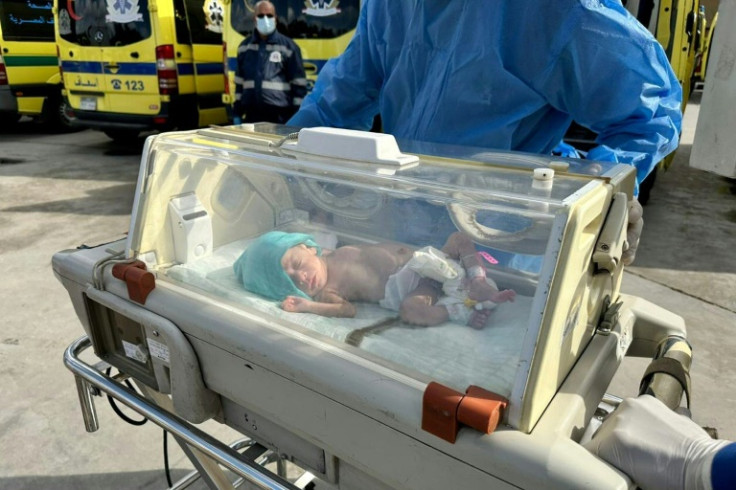
Despite talk of a temporary truce, fighting raged on in Gaza's bloodiest ever war, sparked by the October 7 attack in which Israel says Hamas gunmen killed about 1,200 people, mostly civilians, and seized around 240 hostages.
In retaliation, Israel launched a relentless bombing campaign and ground offensive in Gaza. According to the Hamas government, the war has killed more than 14,100 people, including nearly 6,000 children and close to 4,000 women.
The hostages' families have demanded that Israel should insist on the return of all those being held, and the Religious Zionist party, which is part of Netanyahu's coalition government, has voiced opposition to the deal, denouncing it as "bad" for Israel's security, for the hostages and soldiers.
Sources from Hamas and Islamic Jihad, which also took part in the October 7 attacks, told AFP on condition of anonymity that the tentative agreement would include a five-day truce, comprised of a complete ceasefire on the ground and an end to Israeli air operations over Gaza, except in the north, where they would only halt for six hours daily.
Under the deal, which the sources said could yet change, between 50 and 100 Israeli and dual-national civilians would be released in exchange for some 300 Palestinian women and children currently held in Israeli jails.
The agreement needs the backing of Israel's war cabinet, security cabinet and cabinet. The first two meetings have been held, but the results have not yet been made public.
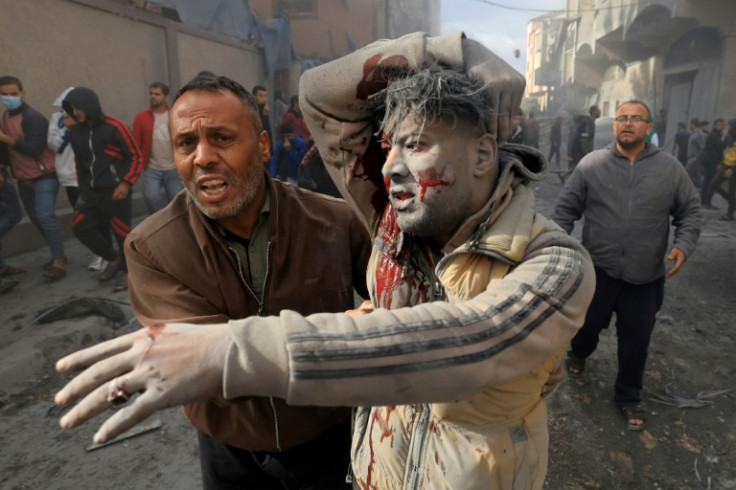
Hopes of a release deal have been mounting since Qatar on Sunday said only "minor" practical issues remained.
Ahead of the meetings, Hamas leader Ismail Haniyeh had said: "We are close to reaching a deal on a truce".
In Qatar, foreign ministry spokesman Majed Al-Ansari said "we're very optimistic, very hopeful" and told reporters: "We are at the closest point we ever had been in reaching an agreement."
Biden, who does not support a full ceasefire, said a temporary truce was "now very close".
"We could bring some of these hostages home very soon," he said. "But I don't want to get into the details of things because nothing is done until it's done."
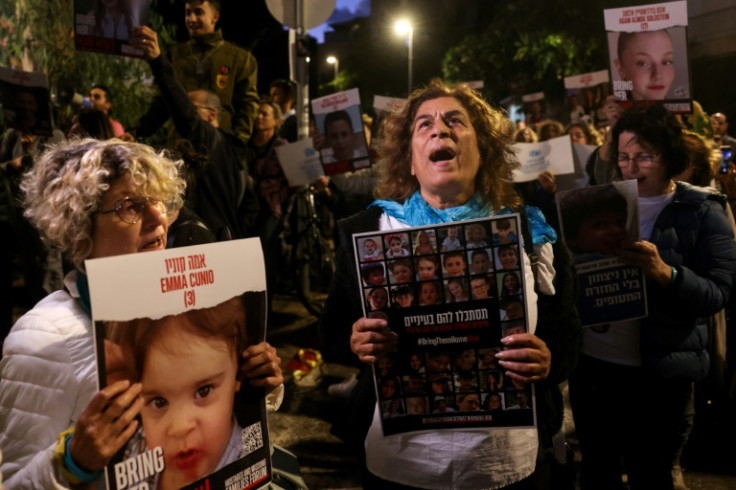
The BRICS group of nations including Russia, India and China called for an "immediate, durable, and sustained humanitarian truce leading to a cessation of hostilities" in Gaza aimed at drawing up a common response to the conflict.
Rafah resident Hamza Abdel Razeq said a ceasefire would bring some respite for Gazans who have endured Israel's bombing and expanding ground offensive.
Another resident, Mahmud Abu Najm, added: "We... pray to God for its success because the people are enduring an unbearable situation."
Large parts of Gaza have been flattened by thousands of air strikes, and the territory is under siege, with minimal food, water and fuel allowed in.
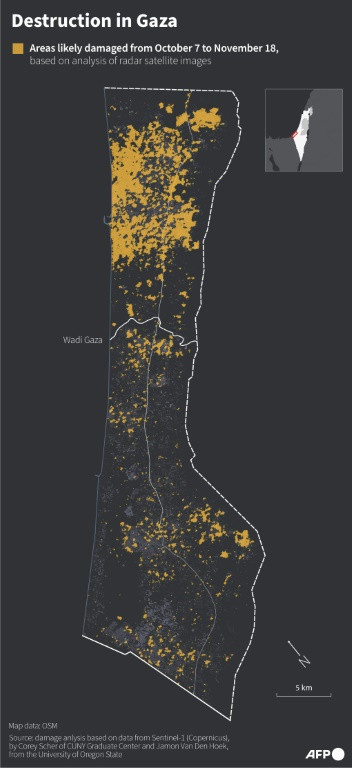
According to the Hamas and Islamic Jihad sources, the proposed deal would also allow for up to 300 trucks of food and medical aid to enter Gaza.
Israel has vowed to press on with its offensive, pledging to crush Hamas and ensure the hostages are released.
The Israeli military, meanwhile, said air strikes had hit "around 250" Hamas targets in the past day, destroying three underground shafts in the Jabalia area, which it said it had fully surrounded.
In the occupied West Bank, the health ministry said the Israeli army killed one Palestinian in Nablus.
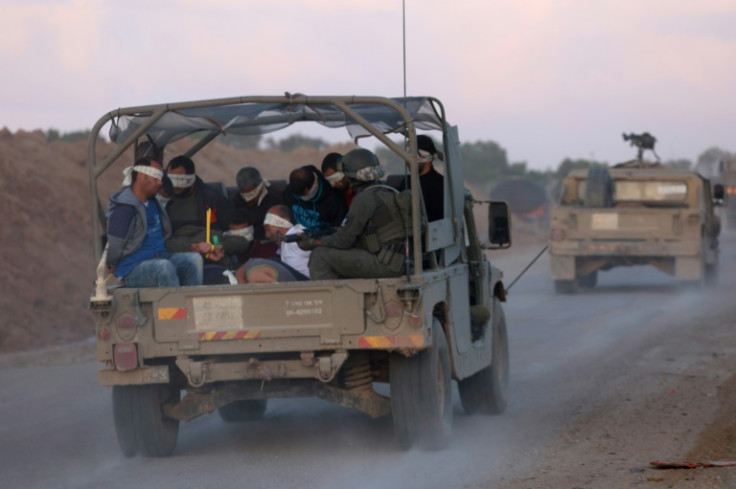
In southern Lebanon, where exchanges of fire between Israel and Hamas ally Hezbollah have raised fears of a wider conflict, eight people including two journalists were killed Tuesday in Israeli strikes.
And in Iraq, a US strike killed multiple Iran-backed militiamen after they fired a short-range missile at American and allied forces in the country, the Pentagon said.
Medics and patients have been increasingly caught up in the fighting, as Israel expanded its operation across northern Gaza.
The Hamas-run health ministry said Israel had laid siege to and hit the Indonesian Hospital in Jabalia on Monday, killing dozens, but there was no independent confirmation of the toll.
The Israeli army said later its troops had "directly targeted" the source of fire from within the Indonesian Hospital.
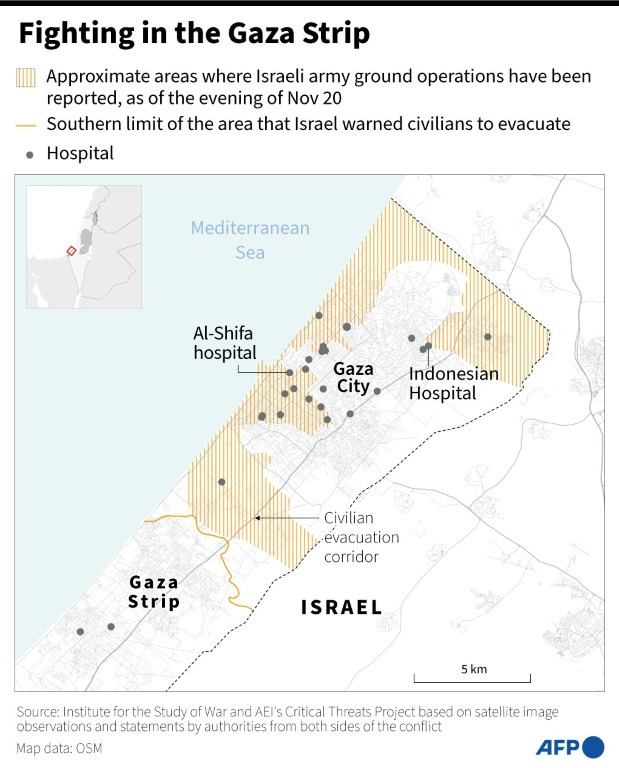
Twenty-eight premature babies from Gaza's largest hospital, Al-Shifa, were taken to Egypt for treatment on Monday. Three others remained in southern Gaza, the World Health Organization said on Tuesday.
Two babies died before the evacuation, it said.
The Indonesian Hospital lies near Gaza's largest refugee camp Jabalia, which has been the scene of intense Israeli bombing.
The health ministry official said there were still about 400 patients inside the hospital, as well as 2,000 people seeking shelter.
Around 200 people were evacuated from the hospital on Monday and bussed to the relative safety of a hospital in Khan Yunis in southern Gaza.
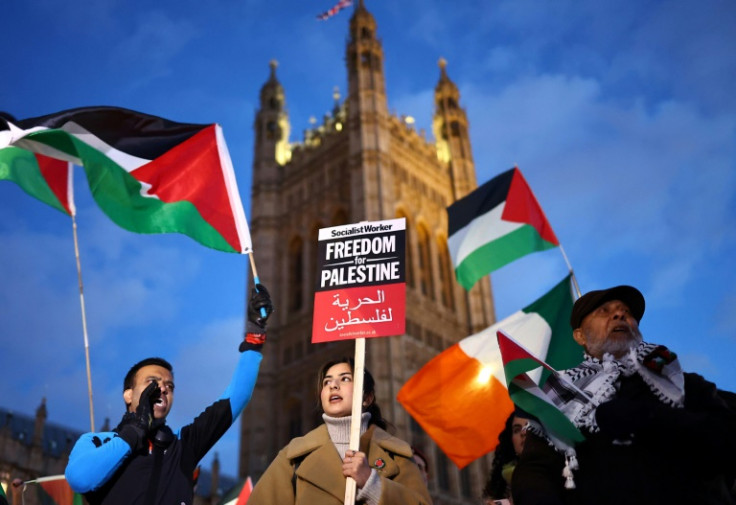
Doctors Without Borders (MSF) said three doctors, including two it employed, were killed in an Israeli strike on the Al-Awda hospital in Jabalia refugee camp.
Israel says Hamas uses medical facilities to hide fighters and as bases for operations, making them legitimate military objectives, while insisting it does everything possible to limit harm to civilians.

But criticism of Israel's conduct of the war has grown, from international agencies and some governments, with protests held worldwide.
The WHO said it was "appalled" by the strike on the Indonesian Hospital, calling it just one of 164 documented attacks on health facilities and workers since the war began.
The UN children's agency, meanwhile, warned that fuel shortages and worsening sanitation in Gaza were shaping up to be "a perfect storm for tragedy" through the spread of disease.

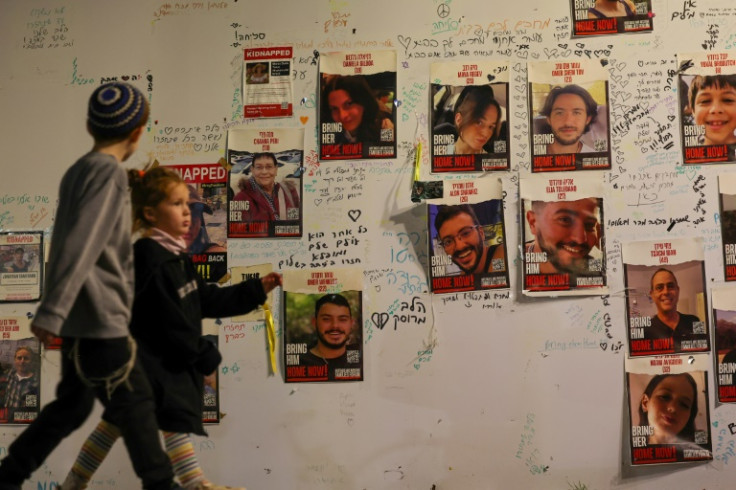
© Copyright AFP 2025. All rights reserved.





















